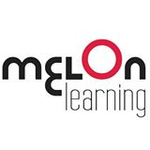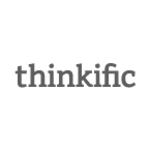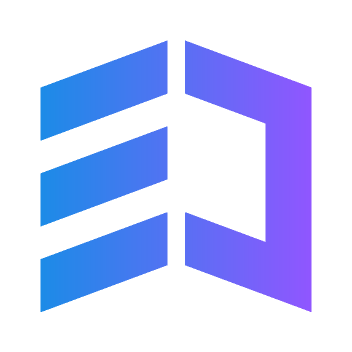Description

Melon LMS

Thinkific
Comprehensive Overview: Melon LMS vs Thinkific
Melon LMS and Thinkific are both online learning management systems (LMS) that serve different functionalities and target markets within the e-learning space. Here’s a comprehensive overview of each:
a) Primary Functions and Target Markets
Melon LMS
Primary Functions:
- Course Creation and Management: Melon LMS provides tools to create, manage, and deliver online courses to learners. It includes options for multimedia integration, assessments, and learner tracking.
- User Management: Administrators can easily manage users, assign roles, and track progress.
- Reporting and Analytics: Offers detailed reporting features that help in analyzing learner performance and course efficacy.
- Customization and Branding: Allows organizations to customize the LMS to reflect their branding.
Target Markets:
- Corporations: Used mainly by businesses for employee training, onboarding, and compliance training.
- Education Institutions: Some educational institutions might use it for course management and e-learning.
- Non-Profit Organizations: For training volunteers and staff.
Thinkific
Primary Functions:
- Course Creation Tools: Thinkific provides a platform for instructors to create, market, and sell online courses. It supports video, text, quizzes, and downloadable attachments within its interface.
- Integrated Marketing and Sales: Features to help instructors market their courses, including sales pages, coupons, and integrated email marketing.
- Community Building: Offers features for building a community around courses, such as discussion forums and comments.
- Monetization: Tools for pricing courses and building membership sites.
Target Markets:
- Entrepreneurs and Solo Creators: Individuals looking to monetize their expertise by selling courses.
- Small to Medium Businesses (SMBs): Companies offering educational content to customers or employees.
- Educational Institutions: Particularly ones focused on online learning offerings.
b) Market Share and User Base
-
Melon LMS: Melon LMS operates primarily in the corporate training market, which is competitive but fragmented. Detailed market share data specific to Melon LMS isn't widely available, but enterprise-focused LMS solutions typically have a smaller user base than widely adopted massive online platforms.
-
Thinkific: Thinkific competes in the creator economy and e-learning market, rivaling platforms like Teachable and Udemy. It has a significant market share among small businesses and solo course creators. It boasts over 50,000 course creators and millions of students have taken courses on their platform.
While precise numbers can fluctuate, Thinkific generally has a more prominent presence in the market compared to Melon LMS, thanks to its wide acceptance among individual entrepreneurs and small businesses.
c) Key Differentiating Factors
-
Target Audience Density: Melon LMS is inclined more toward corporate environments, focusing on internal training, whereas Thinkific is oriented toward individuals and businesses looking to sell courses to the public.
-
Monetization Tools: Thinkific offers more robust tools for selling and marketing courses. This is a central feature for its users, unlike Melon LMS, which is more geared towards internal training without strong monetization functionalities.
-
Community and Engagement Features: Thinkific provides community-building tools such as forums and integrated social features, which Melon LMS typically lacks.
-
Ease of Use and Setup: Thinkific is designed to be user-friendly for non-technical entrepreneurs, offering straightforward interfaces for creating and selling courses. Melon LMS might require more technical expertise, particularly when integrated into broader corporate systems.
-
Presence of Advanced Analytics: While both platforms offer analytics, Melon LMS often focuses on detailed employee performance analytics aligned with corporate needs.
In summary, the key differences lie in their target purposes: Melon LMS serves corporate training needs, while Thinkific caters to the online course marketplace. Consequently, their features and functionalities reflect these objectives.
Contact Info

Year founded :
Not Available
Not Available
Not Available
Not Available
Not Available

Year founded :
2012
Not Available
Not Available
Canada
Not Available
Feature Similarity Breakdown: Melon LMS, Thinkific
Melon LMS and Thinkific are both platforms designed to facilitate online learning, but they cater to different user needs and market segments. Here's a breakdown of their feature similarities and differences:
a) Core Features in Common
-
Course Creation and Management:
- Both platforms offer tools to create and manage online courses. This includes content upload (videos, PDFs, quizzes), course structuring, and scheduling.
-
Assessments and Quizzes:
- Both Melon LMS and Thinkific have built-in assessment tools that allow for quizzes, assignments, and tests to evaluate learner progress.
-
User Management:
- They offer user management features that help administrators track learner progress, manage enrollments, and handle group or cohort creation.
-
Reports and Analytics:
- Both platforms provide reporting and analytics tools to gain insights into course effectiveness and learner engagement.
-
Integrations:
- Both support integrations with various third-party applications like CRM systems, email marketing tools, and more.
-
Certificates:
- They offer the capability to issue certificates upon course completion.
b) User Interface Comparison
-
Melon LMS:
- Melon LMS tends to focus on a clean and straightforward interface, aiming for simplicity and ease of use. Its design philosophy is often geared towards minimalistic elements, allowing for intuitive navigation. This can be advantageous for users who prefer less cluttered interfaces.
-
Thinkific:
- Thinkific has a more polished and modern look with a modular interface. It provides extensive customization options for branding, making it attractive for those who want to create a personalized learning experience. Thinkific’s UI may initially seem more complex due to these options but offers greater flexibility for design-minded users.
c) Unique Features
-
Melon LMS:
- Customization and Branding: While both platforms offer customization options, Melon LMS often focuses on deeper integrations and custom workflows tailored to specific enterprise needs.
- Compliance Training Features: Melon LMS frequently provides features that cater to compliance and regulatory training needs, which are beneficial for organizations in specific industries.
-
Thinkific:
- E-Commerce Capabilities: Thinkific excels in its e-commerce functionalities, offering robust tools for setting up payment gateways, pricing models, memberships, and subscriptions.
- Community Building: Thinkific provides features for building online communities around courses, like discussion boards and forums, to enhance learner engagement.
- App Store: Thinkific has an app store that allows users to extend the platform’s capabilities with additional integrations and features, providing more flexibility and customization options.
In conclusion, both Melon LMS and Thinkific offer comprehensive core features for online learning, but they cater to slightly different audiences and use cases. Melon LMS is often preferred by enterprises for its simplicity and focus on compliance, while Thinkific is favored by course creators and entrepreneurs looking for extensive customization and commercial features.
Features

Not Available

Not Available
Best Fit Use Cases: Melon LMS, Thinkific
When considering learning management systems like Melon LMS and Thinkific, it's essential to understand their unique features and capabilities to determine the best fit for specific business needs and projects. Here’s a breakdown:
Melon LMS
a) Best Fit Use Cases for Melon LMS
-
Corporate Training Programs:
- Ideal for businesses looking to manage and deploy company-wide training sessions or employee development programs.
- Supports complex organizational structures, making it suitable for enterprises with diverse training needs.
-
Compliance and Certification Programs:
- Organizations needing to manage and track compliance or certification processes will find its robust reporting tools beneficial.
- Industries like healthcare, finance, or manufacturing, which require regular compliance training, would benefit from its features.
-
Blended Learning Solutions:
- Offers capabilities to integrate both online and face-to-face training sessions.
- Suitable for educational institutions or corporate training that require a mix of delivery modes.
-
Customization and White-Label Options:
- Companies needing a highly customized learning environment with branding opportunities will find Melon LMS appealing.
- Particularly beneficial for consulting firms or training providers who want a tailor-made solution for their clients.
Thinkific
b) Preferred Use Cases for Thinkific
-
Entrepreneurs & Small Business Owners:
- Perfect for individuals or small businesses looking to monetize their expertise by creating and selling courses online.
- User-friendly interface makes it easy for non-technical users to get started quickly.
-
Creators and Thought Leaders:
- Ideal for authors, coaches, and public speakers who want to expand their brand by offering online courses.
- Strong community and marketing tools make it easier to engage with students and build a following.
-
Content-Driven Education Models:
- Best for businesses or educators focusing on content-heavy education, as it supports multimedia content like video, quizzes, and downloadable files.
- Suitable for topics ranging from creative arts to scientific disciplines.
-
Rapid Course Deployment:
- Perfect for users who need to get a course up and running quickly without extensive technical support.
- Its platform provides templates and easy integration with payment gateways, making it attractive for fast-paced environments.
Industry Verticals and Company Sizes
Melon LMS
-
Industry Verticals:
- Well-suited for sectors with strict regulatory requirements (e.g., healthcare, finance).
- Adaptable to industries needing in-depth analytics and reporting (e.g., manufacturing).
-
Company Sizes:
- Scales well for medium to large enterprises due to its advanced features and customization options.
- Smaller companies with complex training needs may also find it beneficial.
Thinkific
-
Industry Verticals:
- Primarily focused on the education sector, wellness, business coaching, tech, and creative arts.
- Attracts industries where personal branding and direct-to-consumer teaching is prevalent.
-
Company Sizes:
- Ideal for small to medium-sized businesses and solo entrepreneurs.
- Can also serve larger companies looking for straightforward course delivery options without the need for extensive customization.
In summary, Melon LMS and Thinkific cater to different audiences and project types, with Melon LMS focusing on comprehensive, customizable corporate solutions and Thinkific emphasizing a user-friendly platform for educators and entrepreneurs looking to create and market online courses quickly.
Pricing

Pricing Not Available

Pricing Not Available
Metrics History
Metrics History
Comparing undefined across companies
Conclusion & Final Verdict: Melon LMS vs Thinkific
When evaluating Melon LMS and Thinkific, it's essential to consider various factors, including features, usability, pricing, and target audience. Both platforms cater to the online course creation niche but offer different strengths and potential drawbacks.
Conclusion and Final Verdict
a) Best Overall Value
Thinkific generally offers the best overall value for a broad range of users. It is well-known for its comprehensive set of features that cater to educational entrepreneurs and businesses looking to create engaging online courses. It provides a balance of usability, functionality, and scalability, making it suitable for both beginners and more advanced users.
b) Pros and Cons
Melon LMS:
-
Pros:
- Customizability: Offers a high degree of customization, allowing users to tailor their courses to specific needs.
- Focus on Corporate Training: Particularly strong in providing solutions for corporate training and employee onboarding.
- Integrations: Compatible with various third-party tools, enhancing its functionality.
-
Cons:
- User Experience: Can be less intuitive for users who are not tech-savvy, which may require a steeper learning curve.
- Market Presence: Lesser market presence compared to Thinkific, which may result in limited community support or resources.
Thinkific:
-
Pros:
- Ease of Use: User-friendly interface that allows creators to set up courses quickly without technical expertise.
- Comprehensive Feature Set: Strong course design tools, marketing features, and analytics that support growth.
- Community and Support: Large user community and robust support options.
-
Cons:
- Cost: Pricing can escalate quickly with the need for advanced features.
- Customization: May not offer the extensive customization options available with Melon LMS, which could be a limitation for some niche needs.
c) Recommendations for Users
-
For Beginners and Small Creators: Thinkific is recommended for those who are new to online course creation due to its intuitive interface and strong community support. Its free plan is a good starting point for testing the waters before committing to a paid plan.
-
For Advanced Users and Corporate Training Needs: Melon LMS may be the better choice for users requiring extensive customization or for organizations focusing on corporate training. Its ability to integrate with specific tools and tailor the learning experience makes it suitable for complex corporate requirements.
-
Budget Considerations: If budget constraints are a major consideration, users should carefully evaluate the pricing plans of both platforms, considering any hidden costs associated with the exact features they need.
Ultimately, the decision between Melon LMS and Thinkific should be guided by the specific needs of the user, their technical comfort level, and the nature of the courses they plan to offer.
Add to compare
Add similar companies




